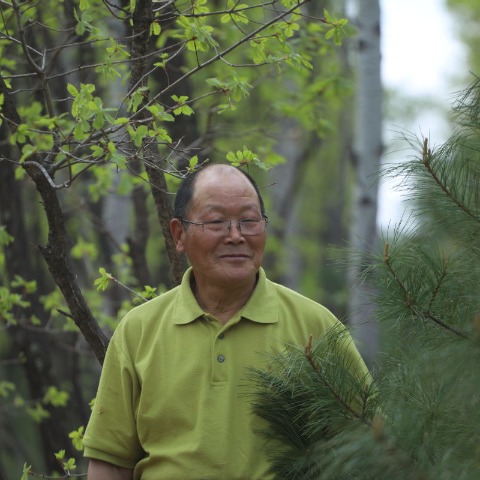


Editor's Note: The eyes of the world are turning to China. In this ongoing series How-to China, we tell stories about how Chinese approaches promote understanding and solve problems around the globe and how Chinese and foreign cultures meet and mingle.

The government of Daur Autonomous Banner of Morin Dawa – administered by Hulunbuir city in North China's Inner Mongolia autonomous region – has increased its forest and grass areas considerably in recent years.
Helping lead the way is 78-year-old Li Zhenhai, who has been greening barren mountains for more than 30 years. He and his wife Jiang Kaizhi have personally planted more than 2,300 mu (153 hectares) of forest in the banner.
In an exclusive interview with China Daily, Li shared the story behind his decades of hard work.
Here are some excerpts.
Q: You were born in Shandong province, so what attracted you to the banner?
Li: In the autumn of 1973, I came to the banner to visit relatives. To pass time, I collected mushrooms, fungus and hazelnuts and earned more than 300 yuan ($47) a week, which was what I used to earn in my hometown in a year. I decided to settle in the banner because of the abundant resources there.

Q: What made you turn from farming to planting trees?
Li: In less than three years, my wife and I reclaimed more than 50 mu of land and lived a quiet and comfortable life by farming. But a sudden rainstorm in 1980 washed away our land. With my farming experience, I knew within two years the land would be so damaged it could not be farmed. I decided to plant trees to make a living and protect the local environment.
My idea was opposed by my family, but I headed out alone into the mountains. My son brought me back, driving a four-wheel tractor, but the next day I went again. Seeing I was so insistent, my wife decided to go up into the mountains with me to fulfill my dreams.
Q: So your wife is supportive. What were the living conditions like in the mountains at first? What was your most memorable experience?
Li: Life in the mountains is very hard. There was no electricity and mosquitoes were everywhere. There were no vegetable fields, so we had to pick wild vegetables to feed ourselves.
There were snakes and insects on the mountain at night. My wife was afraid when she first came. One day, a snake climbed onto the quilt when we were sleeping. Concerned, I said to her, 'Go back. I'll stay here and take care of the saplings.' But after walking down the mountain alone for some time, she was worried about me and it made sense for her to go back to help me green the hillside.
In the beginning, we planted trees by digging holes and putting saplings in. Due to a lack of technology and planting experience, the survival rate of saplings was less than 10 percent in the first seven years of planting.

Q: How did you find ways to ensure a better survival rate?
Li: We realized we could not succeed without the guidance of science and technology, so I began to subscribe to various forestry magazines. Our persistence attracted technical support and funds from the local government and forestry department to help us install electricity and a mechanically powered well.
I bought high-quality seedlings from other places and changed the soil in the nursery so the seedlings could adapt. After the technical improvements, the survival rate of the pine trees reached more than 95 percent.
We had little time for leisure. Planting trees in spring is the hardest. Every morning we have to transport the saplings 1 kilometer up the mountain, and we have to work more than 10 hours every day.

Q: How have you inspired others around you?
Li: My wife and I have donated more than 4 million yuan worth of green saplings to the banner over the years. We have also put our many years of experience in planting trees in a manual to share with the villagers, to encourage others to take up afforestation.
Q: What are you looking forward to most?
Li: Where there is life, plant more trees. Now my biggest wish is everyone plants a few trees every year. I firmly believe if one person plants a tree, the desert will eventually become an oasis.

About the interviewee
Li Zhenhai, one of Hulunbuir's pioneers in entrepreneurship for farmers and herders, was once elected as a deputy to the People's Congress of Inner Mongolia autonomous region and and the city's as well.
He was born on Aug 30 in 1944 in Shandong province. In 1973, he moved to Daur. He started afforestation in 1984, which he still pursues to this day.
In all, he has personally completed the afforestation of more than 2,000 mu of land and has planted more than 600,000 trees – realizing an estimated economic value of 100 million yuan and an ecological value of 300 million yuan.
Over the years, he has donated saplings worth more than 4 million yuan to society. He has been conferred the title of National Model of Greening and Afforestation, has received the National Green Gold Great Wall Medal, and has been made a Moral Model of the Inner Mongolia Autonomous Region.
Editors: Shan Juan, Wang Jianfen and Liu Ming
If you have any problems with this article, please contact us at app@chinadaily.com.cn and we'll immediately get back to you.